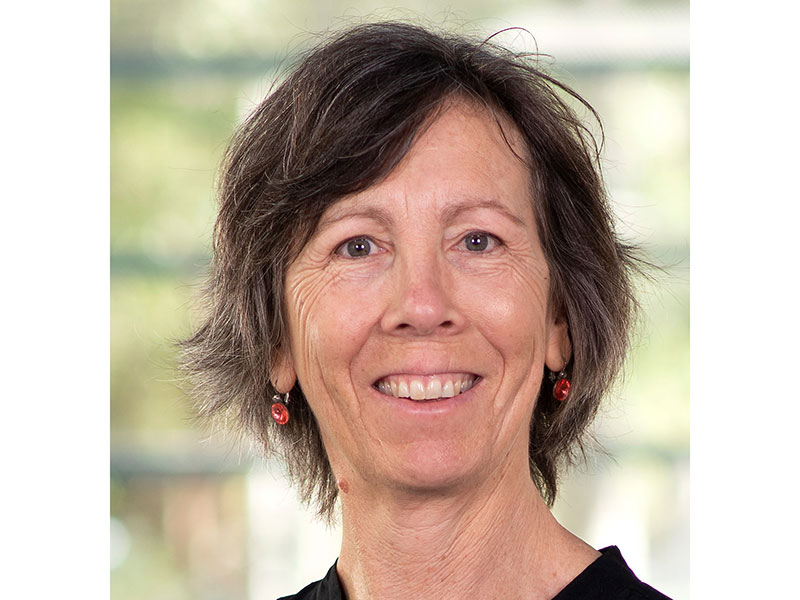Researcher Highlights
The crucial role of fathers
Jennifer St.George
As a family studies lecturer and researcher, Dr Jennifer St George is shining a light on fatherhood and its influence on positive early child development.

The first 1000 days of life is sometimes referred to as the brain’s “window of opportunity”. It’s a critical time for a child’s development, and Jennifer’s research shows that both parents have an important role to play.
“Those first 1000 days of a child’s life are crucial, and we need to know how both parents can make a difference during this period,” Jennifer says.
While Jennifer lectures across all aspects of family studies, her research is specifically focussed on fatherhood. From rough and tumble play, to more subtle psychological support, a father’s involvement contributes significantly to their children’s social and emotional development. And yet, the paternal relationship remains mostly under-researched.
“In the field of fatherhood research, there is much more to understand about the nature, impact and pathways of paternal influence on children.”
Play time: it’s serious business
To more deeply understand a father’s influence, Jennifer is researching a well-known pastime in many family homes: father-child play. Her current research examines fathers’ interactions with their children, between zero and five years of age, to see how stimulating play affects a child’s development and behaviour.
“I want to discover the physiological and neurological activity that occurs during stimulating and challenging play between father and child. This includes rough and tumble play, which children love so much!
“If we can understand how challenging and boisterous physical play affects brain development and cognitive processes, perhaps we can enrich parent involvement in the prevention and treatment of children’s behavioural disorders.”
Jennifer’s research is in collaboration with an interdisciplinary team of researchers, including Dr Emily Freeman, Dr Linda Campbell and Professor Shelly Lane. The team’s collective expertise in assessing children’s developmental functioning, father-inclusive practice, and intervention studies has informed multiple satellite studies investigating paternal play.
“In one collaborative study with occupational therapy professor, Shelly Lane, we considered the aspect of playfulness in child and father interactions to better understand how fathers may contribute to children’s therapy and education.
“In another study, carried out in collaboration with the University of Amsterdam’s Professor Mirjana Majdandzic, we investigated how challenging and stimulating parenting—such as teasing, competition, daring and physical play—might assist in lessening children’s anxiety and other internalising and externalising behaviours.
“Being a researcher gives my daily work a raison d'être; there is always something new being discovered!”
Highlights from Jennifer’s research career so far include participating in the University’s ThinkWell Early and Mid-Career Women’s Development Program in 2018, facilitated through the Faculty of Health and Medicine's Gender Equity Committee, and travelling to the University of Michigan for the SRCD-funded working group on Measurement of Fathering.
“The overall purpose of the working group of international fatherhood scholars was to discuss methods, paradigms and measures of father-child relationships in the field of child development.
“Both programs enabled me to connect with researchers in related fields and have put me on an exciting and productive research trajectory.”
Jennifer plans to dig deeper into father-child play in the coming years. She has multiple innovative projects on the cards, including designing a new way to measure rough and tumble play, and studying the biopsychological nature of fathers’ stimulating play with their children to determine if play helps children learn how to regulate stress.
Evidence-informed teaching
Jennifer advocates for fathers, and families more generally, as the University’s senior lecturer in family studies. With more than a decade of experience in teaching at a tertiary level, she enjoys encouraging and supporting students in their learning and frequently draws on her research insights to keep students at the forefront of new developments in the field of family studies.
“I embed a ‘researcherly’ spirit into my teaching by inviting students to create their own investigations and question their assumptions.
The University of Newcastle acknowledges the traditional custodians of the lands within our footprint areas: Awabakal, Darkinjung, Biripai, Worimi, Wonnarua, and Eora Nations. We also pay respect to the wisdom of our Elders past and present.